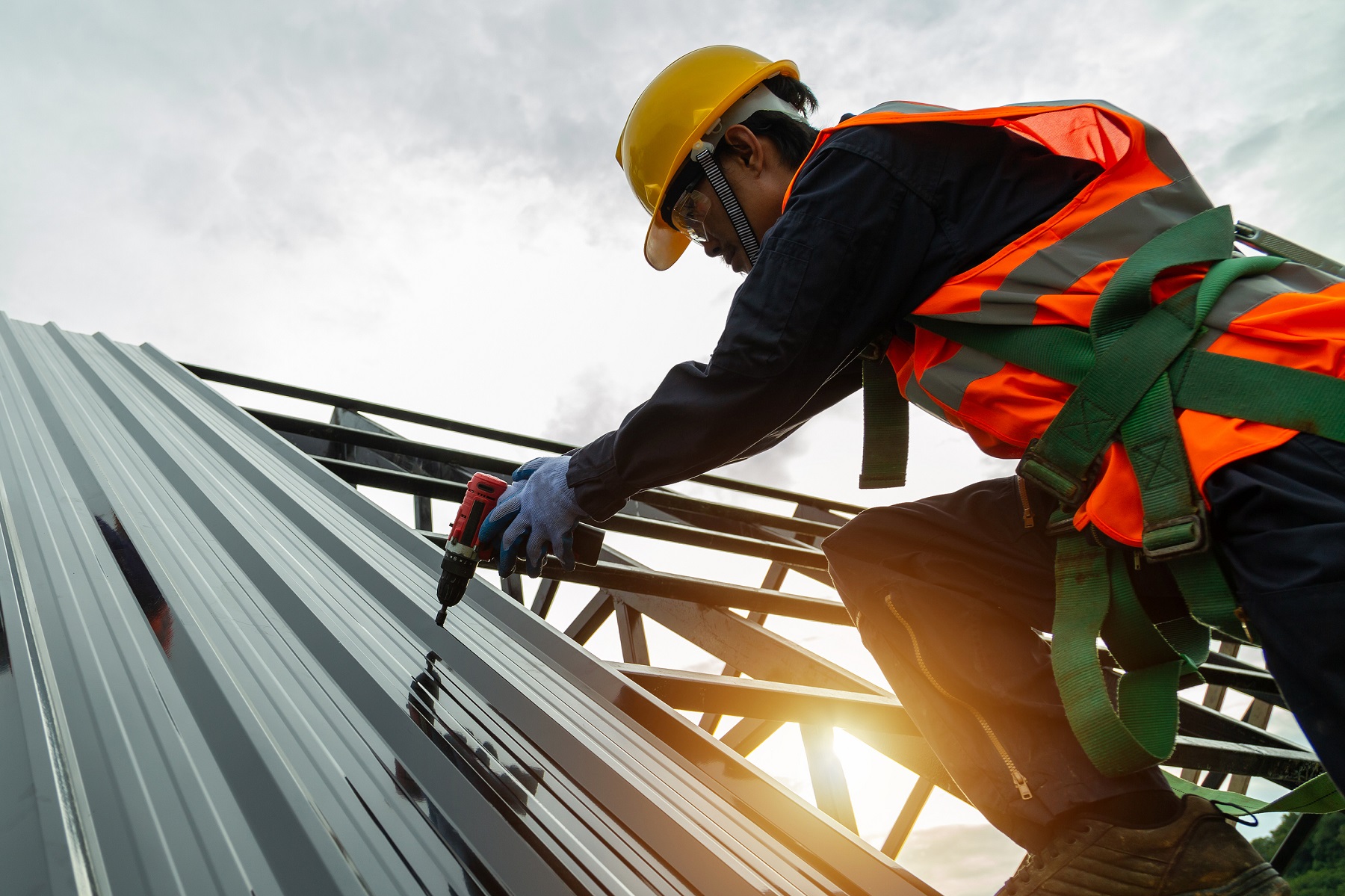Whether you’re planning a commercial or residential roofing project, metal is among the best materials for the job. Its remarkable longevity and durability can add value to any building, and perhaps more importantly, metal roofing offers excellent protection against wind, water, fire, and other potential environmental impacts.
Whether it’s time for a roof replacement or you’re getting ready to put a roof on a building under construction, metal has several advantages over other roofing materials. Check out the benefits of metal roofing below to see if it may be the right material for your new roof.
Metal Roofing Has a Long Lifespan
Of all the roofing materials on the market, metal is one of the longest-lasting there is, and for most home and building owners, that’s its foremost benefit. While its lifespan will vary based on the type and quality of the metal, a properly installed and maintained metal roof should last anywhere from 25–50 years.
Higher-end metals, such as zinc or copper, can last well over 50 years, and some even last more than 100 years. Compared to the lifespan of most other roofing materials — which is generally around 30–40 years, give or take — metal roofing has a clear advantage in the longevity department.
Metal Roofs Are Highly Durable
Metal roofing lasts for several decades because it’s naturally a highly durable material. Like lifespan, the roof’s durability will vary according to the type and quality of the metal, as well as the quality of the installation and whether the roof is properly maintained.
Generally speaking, however, all types of metal roofing are highly resilient (although heavy hail may dent certain types of metal) and can resist:
- Wind. Most types of metal roofing can withstand prolonged winds of up to 140 mph, while some higher-quality materials can even withstand gusts of up to 180 mph.
- Rot. Metal roofing can’t absorb moisture, which makes it highly resistant to mold, mildew, and rot development. Rotting decking often attracts unwanted pests, and because metal roofing won’t encourage rot, it can help prevent pest intrusions too.
- Cracks. Unlike slate or tile roofing, metal is highly crack resistant and won’t fracture under impact (it may dent though). And unlike asphalt shingles, which can crack due to expansion caused by excessive heat exposure, metal roofing is highly heat resistant and reflective. Even with intense and prolonged heat exposure, a metal roof won’t crack.
- Corrosion. Most metal roofing available today features a specialty coating designed to prevent corrosion and rust from developing. While older metal roofs may have been susceptible to corrosion, modern materials are treated to allow them to last much longer without experiencing deterioration.
- Fire. Metal roofing has a Class A fire rating, which means it’s able to withstand even direct flames and limit the spread of fire far longer than other roofing materials with Class B or C fire ratings.
Metal Roofing Is Fully Customizable and Aesthetically Versatile
While there are plenty of metal roofs that are aesthetically fairly basic, metal roofing can actually be customized to suit a wide variety of design goals. Modern metal roofing is available in more than 100 colors and can even be created in custom hues.
Metal can also be customized to resemble other types of roofing, including shake shingles, slate, clay tiles, and more. If you have an exterior design goal in mind, there’s a good chance you can customize metal roofing to achieve that design, no matter what it looks like.
Metal Roofs Shed Precipitation Easily
The surface of a metal roof is smooth and slippery, which makes it highly water-resistant. During periods of heavy rain, snow, or hail, a metal roof will quickly and efficiently shed precipitation, which protects the roof decking from water damage. Standing seam metal roofs are particularly water-resistant, as are roofs constructed with higher pitches.
Metal Roofing Helps Boost Energy Efficiency
Metal roofing features special finishes, which gives it a major edge in the energy efficiency department. During winter, a metal roof provides excellent insulation, and during the warmer seasons, metal roofs re-emit most of the solar energy that hits them. Depending on the type of finish selected, metal roofing can re-emit up to 90% of the solar energy it absorbs, which can save up to 40% in annual energy costs.
Contact Alpine Sheet Metal Systems for Metal Roofing Fabrication
Are you considering metal roofing? Get in touch with our team at Alpine Sheet Metal Systems to learn more about your options! For more than 20 years, we’ve specialized in custom metal roofing fabrication and installation, and we serve both commercial and residential clients. To learn more, feel free to give us a call today at 972-556-3825 or request a free quote, and we’ll be in touch.

